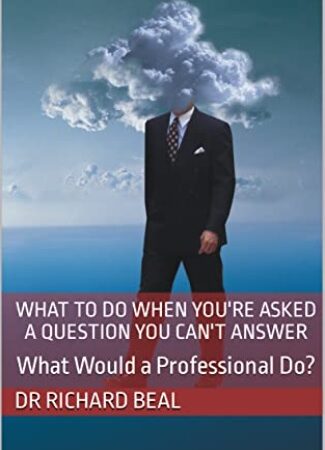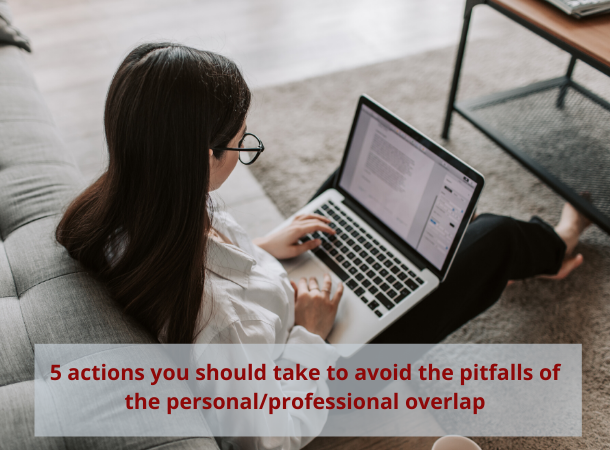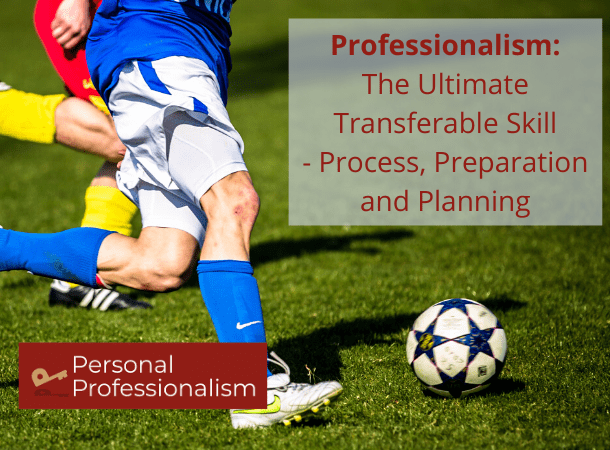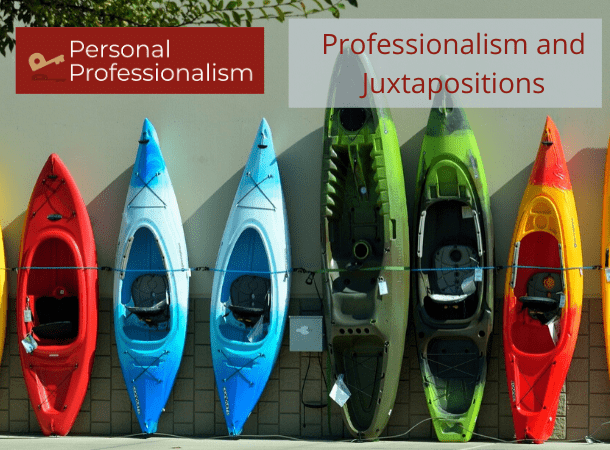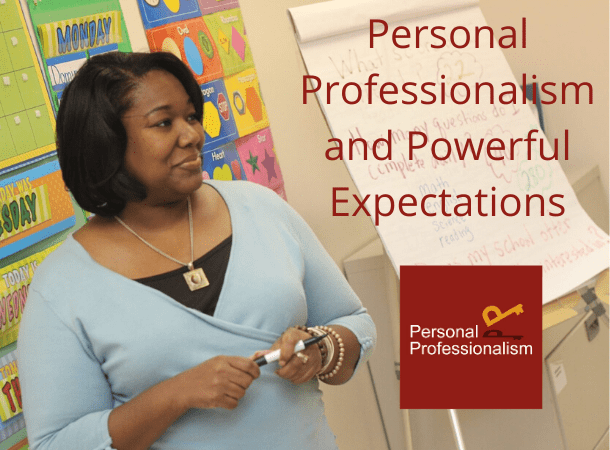Your Professionalism is a Proxy For Certainty in Uncertain Times
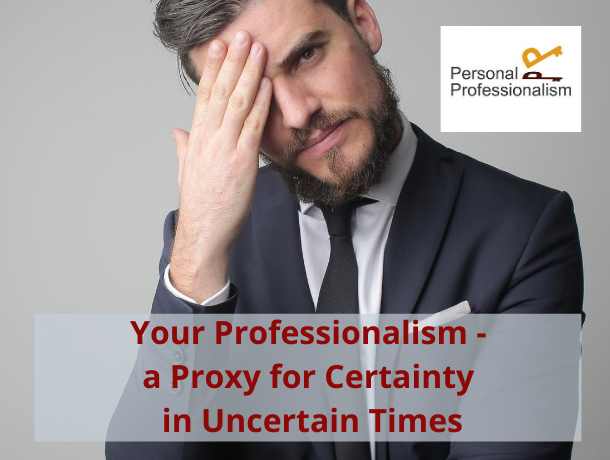
Uncertainty reigns
We are in a situation where we don’t know when isolation and social distancing will end, nor how it will end. As a result, we don’t know if our economy will trickle or boom back to life, nor when. We don’t really even know whether we will return to normal or if there will be an entirely ‘new’ normal. Will we still fit in? Will our job still be there? Working from home can lead to anxiety that you’re not ‘in the loop’; but travelling into work can also mean anxiety about our health due to increased exposure to the general public. In these times of uncertainty, we need a proxy for certainty.
Magnified by enforced isolation
Most of us have worked from home from time to time, a day here and there. Some of us are home-based, but even the home-based occasionally visit head-office or head out to visit clients, colleagues or suppliers. The difference is that this is ‘enforced’, both in legal and social senses. The enforcement will end when the danger has gone, but that is unknowable too. In fact, what does ‘gone’ even mean? Judging by the memes and funny cartoons I see on social media, people are handling everything with good humour. But, they are fatiguing and becoming anxious.
People are tired of working in a place that is normally where they live their private lives. They’re getting a little irritated by trying to work when their personal life goes on around them. The new equation is Uncertainty x (Fatigue+Anxiety) = a whole lot of opportunities for miscommunication!
A Proxy for Certainty
Organisations crave certainty, from fully capitalistic enterprises to tiny not-for-profits. Certainty means that managers can plan their organisation’s future with confidence. They understand and can quantify cost and risk. Uncertainty means increased risk and cost. Your contribution to your organisation’s certainty is your personal professionalism. No one can absolutely guarantee anything, but your professionalism is the best possible proxy. It means that you will have a reputation for remaining reliable by doing your job to expected standards despite difficulties – remember that you are paid for the bad days too!
What we might choose to do next
Hopefully, we are doing what we’ve always done; we continue to perform our roles and deliver our outcomes on time and to the quality expected. There are pitfalls for the unwary that are specific to the present situation, but there are a number of actions we can take to provide certainty and maybe even enhance our professional reputation.
-
Re-calibrate professional ‘Spidey Senses’.
The present disruption means our ability to sense when things are going wrong might be scrambled. When processes work and plans are being delivered, we can rely on written reports and in-person feedback to know when all is well or when things aren’t working. We might still get reports, but we can’t as easily see the ‘whites of the eyes’ of people giving us verbal feedback. We can’t read the ‘tells’ of the body language of people in meetings like we usually can, such as the level of personal engagement or an incredulous roll of the eyes. Not being co-located could mean that people are able to fudge facts and lay blame elsewhere (‘I’m having trouble with my internet!’). These situations cry out for a proxy of certainty.
Unintentional
It’s important to remember that people might not intentionally be being difficult or fudging. Uncertainty, fatigue and anxiety can cause people to drop their guard to intrusions. Their integrity is as strong as ever, but new intrusions are out there, new temptations, new fears. Opportunities for shortcuts, missing calls, relaxing standards, getting unduly upset when things don’t go their way or when they can’t reach someone they usually rely on (that person is home being interrupted by kids).
Re-calibrating
It is worth re-calibrating the flow of information that you rely upon to do your job. The reports, the word of mouth feedback and be able to tune in to when things aren’t right. Be able to edit out the fog caused by disruption. The re-calibrating method itself is simple, but the implementation can be difficult. It is simply asking ‘why’ and then expecting fact-based answers. ‘Why did this go wrong?’; or ‘Why is it not working as it should?’ Look out for answers that are subjective or emotional; be prepared to suspend subjective judgement. Be patient and ask for objective evidence. This is not to put someone ‘on the spot’, but rather to see through the subjective fog and find objective facts. Make sure that you are working with people to identify, understand and resolve issues; you are not seeking to lay subjective blame.
There is definitely a place for subjectivity in professionalism, and it is an important one. Drawing on masterful levels of skill, knowledge and experience, a true professional can have ‘hunches’ about what is going wrong, but a true professional will then follow up with factual analysis. Similarly, a subjective ‘hunch’ can lead to insight about how to solve a problem, but the solution will be backed up with fact and realisable, measurable actions and plans.
-
Review and re-set expectations
Now is a good time to review the expectations placed upon you. Take the time to analyse the situation to identify:
- What you can still control, such as inputs or quality, depending upon your job
- Any degree of uncertainty that brings greater risk, even for things that remain in your control
- What you can no longer control due to the present situation. Is there increased or decreased risk associate with your deliverables?
- Your plan to minimise disruption, cost and risk
- And then take extra time to communicate this appropriately to the people who are relying on you to do your job.
In some cases, the proxy of certainty you are providing won’t be about what the expectations are, but the fact that you have re-set expectations with objectivity, clarity and transparency. That inspires confidence that you know what you are doing.
-
Your conduct and a little patience
If you’re fatigued and anxious, it’s a fair bet that your colleagues, clients, suppliers and even your employers are too. No doubt they will be handling the situation to the best of their ability but they, too, will be coping with the new stresses. Give them one less stress. Remain approachable and personable. Don’t confuse this with being ‘nice’. It is about being open to people to communicate with you in a sensible, rational and human way.
Make the extra effort if you need to. For example, if a colleague is a little more aggressive or snippy than usual, be prepared to overlook it in the short term. The trick is not to acknowledge it, almost as if you haven’t heard, then move past it to focus on issues objectively and without reacting emotionally yourself. Of course, if this behaviour is sustained or abusive, you must address it appropriately. Remember that as a professional, you’re playing a longer game.
-
Unfamiliar Standards?
As has been addressed above, expectations of standards of your usual work-role should be analysed and clearly communicated to your stakeholders, this will help create a proxy of certainty. There are also others to consider – and probably ones that you would not normally need to think about! It’s the ancillary things that will change. For example, colleagues can’t walk to your desk or drop by your office. They now rely on calls and teleconferencing to interact with you.
Might you have to think about a new type of performance standard? Could you now ensure that you answer calls within three rings or perhaps return missed calls within an hour, something you’ve never seriously had to consider before? Might you take extra care to set up your automated ‘out of office’ email when you are unavailable for an extended time? Only you know the specifics and what is appropriate for your work-role, but take care to think about what new standards you might need to apply. Your driver is to demonstrate the certainty you bring to your work-role and all interactions.
In the end, there is an opportunity to enhance your ‘personal brand’
Despite the uncertainty, this WILL be over one day. Your opportunity is that despite it all, you remained reliable and resilient, principled and personable through one of the most unusual crises the world has experienced. You created a proxy of certainty and THAT is a reputation worth toughing it out for.

